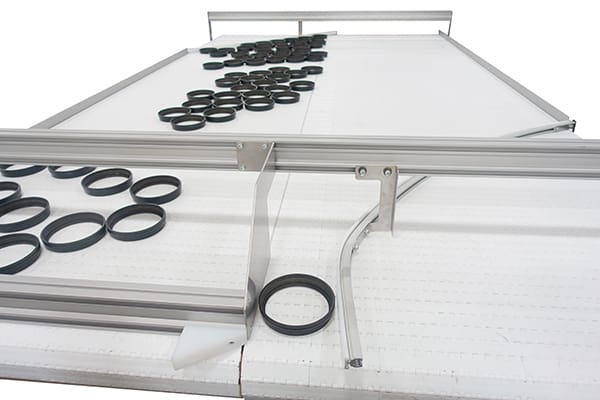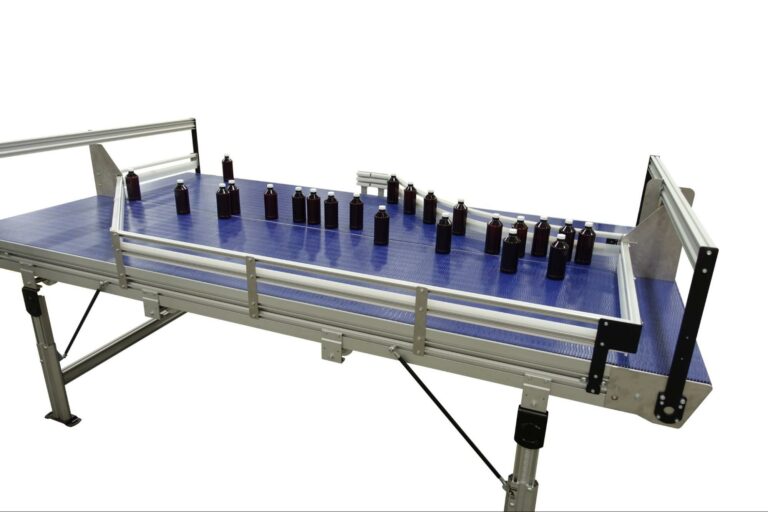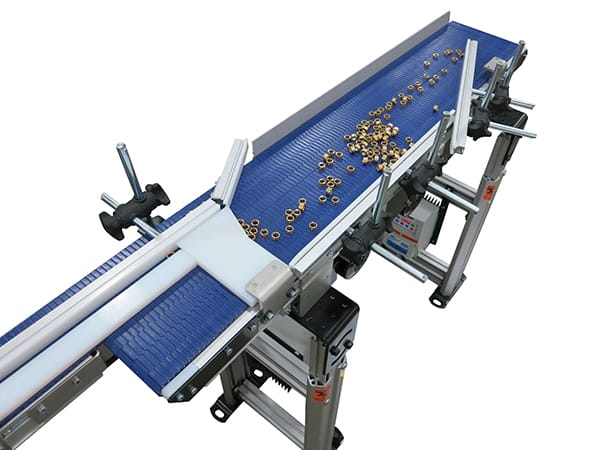
Manufacturing lines require mechanical solutions to facilitate the consistent flow products to maximize throughput, and recirculating conveyors are a common part of these applications.
What are Recirculating Conveyors?
A recirculating conveyor is a piece of machinery that helps move products down a manufacturing line. It optimizes the production process by helping to move products quickly and without error — avoiding backups, redirections, and shutdowns.
Recirculating Tables
A recirculating table is a type of conveyor that creates space for a product to accumulate, and controls the flow to the next process in the manufacturing line.
A type of accumulation conveyor, its belts must be low-friction, and can be made of either fabric, modular belt or plastic chain.

Accumulation Conveyors
An accumulation conveyor is a type of recirculating conveyor that contains overflow and buffers items until a machine or operator downstream is ready to receive them, providing automated control of a product along a manufacturing line.
This type of conveyor is an excellent solution for handling overflow and buffering items along the line. It can smooth out fluctuations in product line rates, and singulate products while controlling outfeed rate. An accumulation conveyor is often regarded as crucial for when items from multiple lines must be merged into a unified line.
It requires low-friction belting, made of either fabric, urethane, modular belt or plastic chain.
Dorner has designed accumulation conveyors (also referred to as accumulation tables) that use multiple belts within the same frame to provide more accumulation space than traditional in-line conveyors.

How Do Recirculating Tables Work?
A recirculating table works by using two or more belts moving in opposite directions to either recirculate products continuously until they can be moved in a singular line to the next step of the process, or accumulate products until an employee is ready to handle them.
Systems using recirculating tables can run unattended, and don’t require electronic controls.



